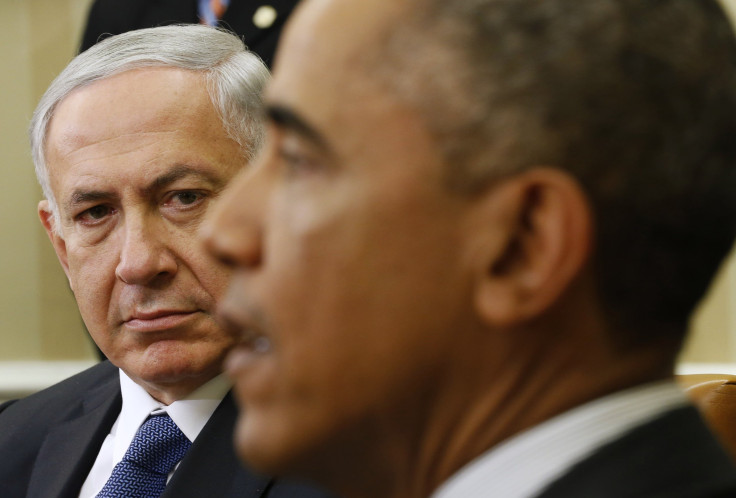Record New US Military Aid Deal For Israel To Be Signed In Days: Sources

The United States and Israel have reached final agreement on a record new package of at least $38 billion in U.S. military aid and the 10-year pact is expected to be signed within days, sources close to the matter told Reuters on Tuesday.
The deal will represent the biggest pledge of U.S. military assistance ever made to any country but also includes major concessions granted by Israeli Prime Minister Benjamin Netanyahu, according to officials on both sides.
Those include Israel’s agreement not to seek additional funds from Congress beyond what will be guaranteed annually in the new package, and also to phase out a special arrangement that has allowed Israel to spend part of its U.S. aid on its own defense industry instead of on American-made weapons, the officials said.
Drawn-out aid negotiations have underscored continuing friction between U.S. President Barack Obama and Netanyahu over last year's U.S.-led nuclear deal with Iran, Israel's arch-foe. The United States and Israel have also been at odds over the Palestinians.
But the right-wing Israeli leader decided it would be best to forge a new arrangement with Obama, who leaves office in January, rather than hoping for better terms from the next U.S. administration, according to officials on both sides.
A deal now allows him to avoid uncertainties surrounding the next president, whether Democrat Hillary Clinton or Republican Donald Trump, and to give Israel’s defense establishment the ability to plan ahead.
Obama's aides want a new deal before his presidency ends, seeing it as an important part of his legacy. Republican critics accuse him of not being attentive enough to Israel's security, which the White House strongly denies.
MISSILE DEFENSE
The deal, known as a memorandum of understanding, or MOU, calls for at least $3.8 billion a year in aid, up from $3.1 billion annually under the current pact, which expires in 2018, officials say. Netanyahu had originally sought upwards of $4.5 billion a year.
The new package for the first time will incorporate money for Israeli missile defense, which until now has been funded ad hoc by Congress. U.S. lawmakers have in recent years given Israel up to $600 million in annual discretionary funds for this purpose.
Officials say Israel has agreed not to lobby Congress for additional missile defense funds during the life of the new MOU, a pledge expected to be made in a side letter or annex to the agreement. But the wording is likely to be flexible enough to allow exceptions in case of a war or other major crisis.
Barring a last-minute snag, the new agreement is expected to be officially rolled out within days, possibly as early as this week, one source close to the matter said.
Another source familiar with the negotiations confirmed that the signing would be "in the coming days".
It will not be signed by Obama and Netanyahu, who have had a fraught relationship, but instead by lower-ranking officials, in keeping with the way the two governments have formally sealed previous deals of this type.
Netanyahu gave ground on several major points. He conceded to a U.S. demand for a gradual phasing-out of the amount of aid money - now 26.3 percent - that Israel can spend on its own military industries rather than on American products. The provision originated in the 1980s to help Israel build up its defense industry, which is now a major global player.
Netanyahu also agreed to end Israel’s use of 13 percent of the U.S. money on military fuel purchases, officials said.
Obama and Netanyahu will both be in New York next week for the opening of the U.N. General Assembly, and officials have not ruled out the possibility of a meeting on the sidelines.
© Copyright Thomson Reuters 2024. All rights reserved.











